
ROME, April 23 (Xinhua) -- The slow and difficult process of selecting Italy's next prime minister restarted Tuesday, a day after newly re-elected Italian President Giorgio Napolitano admonished and threatened parliamentarians in a dramatic attempt to jump start negotiations that have already dragged on for weeks.
At times wagging his finger and with his voice occasionally cracking with emotion, the 87-year-old Napolitano, freshly selected for an unprecedented second seven-year term, said he would walk away from his new mandate if a deal to form a new government was not reached "without delay."
Consultations to that end began Tuesday, with leaders of the coalitions that for eight weeks failed to reach an agreement in a hung parliament. The goal is to enact some form of the government plan unveiled by the 10-member committee of "wise men" Napolitano appointed earlier in the month.
The crisis has gripped Italy for two months, since the Feb. 24-25 national vote failed to give any single coalition enough votes to form a majority in the Italian Senate. That left the country rudderless during an economic crisis, increasing investor jitters across Europe and beyond.
Fulco Lanchester, a noted political scientist with Rome's Sapienza University, said the result is one of the two or three largest "political earthquakes" Italy has felt in the last 40 years.
"You have a political standoff, combined with the country's economic problems, and the sovereign debt crisis across Europe, and you have a conflux of events that nobody could predict," Lanchester said. "The times we are living through now will be studied in the future."
The problems are still not resolved, though events of recent days give hope that a resolution will come sooner rather than later.
The names heard most often as potential prime minister candidates are Matteo Renzi, the 38-year-old Florence mayor seen as a leading figure in a center-left coalition left fractured in the wake of the resignation of former leader Pier Luigi Bersani; Enrico Letta, 46, another leading center-left figure whose uncle, Gianni Letta, is a key ally of controversial former prime minister and billionaire tycoon Silvio Berlusconi; and 74-year-old Giuliano Amato, himself a two-time prime minister from the center-left.
Napolitano has called for broad cooperation between the center-left and Berlusconi's center-right allies, though it is far from clear how that would work.
"A government like that might be able to stay on its feet, but it's not clear how it would govern," said James Walston, a political scientist with the American University of Rome and a frequent commentator. "There's very little the two sides agree on."
Such a coalition would be a fragile one at best, though many predict, as Walston said, that it might "muddle along" for a while. But if it falls, the specter of another lunge for office from Berlusconi, Italy's most polarizing figure, could develop. According to information from the polling firm Opinioni, if an election were held today Berlusconi would win. And pollsters say his support could grow.
"If a government is formed and it fails to be effective, don't be surprised to see support for the populists rise even further," said Maria Rossi, Opinioni's co-director in reference to Berlusconi and Beppe Grillo, the former comic turned political activist who won nearly a quarter of the votes in February on an anti-establishment platform.
That would surely renew investor jitters about Italy's future.
But for now, the election of Napolitano and the promise that a new government may finally be selected this week has sparked at least a short-term wave of optimism in Italy.
Shares on the Italian Stock Exchange in Milan rallied for the second consecutive session Tuesday, and yields on Italy's 10-year bonds -- considered a barometer of the perception of country's economic health -- closed below the 4-percent barrier Tuesday, the first time they dipped below that threshold since November 2010. 
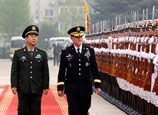




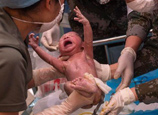
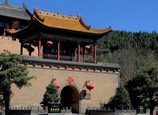

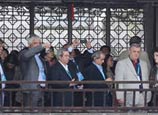
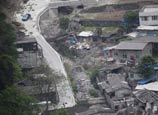






 Local villagers climb mountains to get relief supplies
Local villagers climb mountains to get relief supplies


![]()
